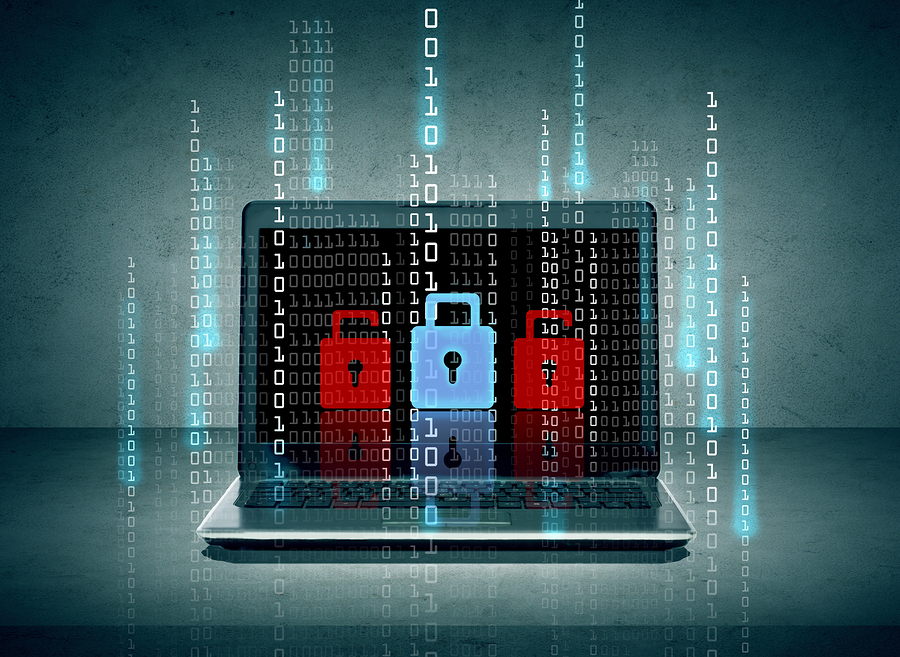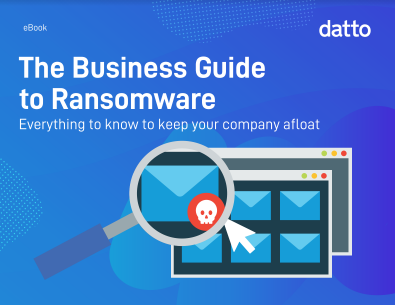How can you protect your business from crypto-ransomware?
Here are some easy-to-apply rules to help keep your data - and your business operations - safe


Crypto-ransomware (or cryptors) is a type of malicious software that accesses files and systems and then denies users’ access to them. The malware then encrypts the files, with cyber criminals demanding payment for owners to gain access again through the release of a decryption key, hence the name ransomware.
RELATED RESOURCE

The business guide to ransomware
Everything you need to know to keep your company afloat
Average users can be expected to pay anything between £350 - £750 to have their data decrypted, but cyber criminals are well aware of how valuable data is to larger organisations, who can face demands in the hundreds of thousands of pounds. However, if a ransom isn’t paid, the fee can increase to staggering amounts before the decryption key is deleted and the data is lost for good. Even when ransoms are paid, there is never a guarantee that the data is safe.
Although larger organisations are impacted, smaller businesses are the ones that make easier targets as they may not have invested in the cyber security that could protect them in the first place. In particular, small professional and financial services are considered to be most attractive to ransomware.
According to a report by Serbus, the UK was the second country in the world affected by ransomware attacks, which have increased significantly since 2019, estimated to equal a staggering financial loss of £140m globally in 2021.
"Some ransom demands have grown to the six- and seven-figure range," said Michael Tanenbaum, Head of Chubb Cyber North America. "It is critical for businesses to understand the increased sophistication of ransomware, what procedures and systems need to be in place to mitigate the risk, and what solutions they need to protect themselves should they experience an attack."
A temporary loss of data can disrupt business-critical processes and could lead to lost sales, reduced productivity and significant costs for system recovery. However, the permanent loss of data can have much more severe consequences, from damaging the company's competitive position to preventing access to intellectual property and design data.
Best ransomware removal tools How to beat ransomware Ransomware gang offers to refund victims' payments
In common with most other types of malware, there are many ways in which a cryptor can find its way onto business computers and other devices. Here are some easy-to-apply rules to help keep your data - and your business operations - safe.
Get the ITPro daily newsletter
Sign up today and you will receive a free copy of our Future Focus 2025 report - the leading guidance on AI, cybersecurity and other IT challenges as per 700+ senior executives
Educate users:
People are often the most vulnerable element in any business. Teach employees about IT security basics, including raising awareness of phishing and spear-phishing attacks. Emphasise the security implications of opening suspicious-looking email attachments, even if it appears to be from a trusted source.
Security awareness training programmes can be a good way of ensuring employees are aware of the latest threats, and to keep security front of mind for staff.
Regularly back up data:
The best way to keep business data safe is by backing up systems regularly. With a good backup system, a ransomware attack won't have a catastrophic effect on business continuity.
Almost all businesses will already have data back up policies. However, it's also essential to back up data onto an offline backup system, rather than just copying files to another live' system on a corporate network. Establishing a backup and disconnect' policy will help keep backup files safe from cryptors.
Protect all devices and systems:
Cryptors don't just attack PCs. Business security software must also be able to protect Mac computers, virtual machines and mobile devices. It is also worth ensuring there is sufficient protection installed on the organisation's email system.
But as well as protecting devices and internal systems, it's also important to make sure that third-party applications are updated as well. Hackers can easily leverage a vulnerability in a popular application to breach your network and start infiltrating other systems.
Deploy and maintain security software:
As with all malware prevention, updating and patching early and often is a valuable policy to follow. Updating all applications and operating systems will allow the elimination of newly discovered vulnerabilities, and ensuring security applications and anti-malware databases are up-to-date will enable the business to benefit from the latest protection.
Esther is a freelance media analyst, podcaster, and one-third of Media Voices. She has previously worked as a content marketing lead for Dennis Publishing and the Media Briefing. She writes frequently on topics such as subscriptions and tech developments for industry sites such as Digital Content Next and What’s New in Publishing. She is co-founder of the Publisher Podcast Awards and Publisher Podcast Summit; the first conference and awards dedicated to celebrating and elevating publisher podcasts.
-
 AI is helping bad bots take over the internet
AI is helping bad bots take over the internetNews Automated bot traffic has surpassed human activity for the first time in a decade, according to Imperva
By Bobby Hellard
-
 Two years on from its Series B round, Hack the Box is targeting further growth
Two years on from its Series B round, Hack the Box is targeting further growthNews Hack the Box has grown significantly in the last two years, and it shows no signs of slowing down
By Ross Kelly
-
 ‘Phishing kits are a force multiplier': Cheap cyber crime kits can be bought on the dark web for less than $25 – and experts warn it’s lowering the barrier of entry for amateur hackers
‘Phishing kits are a force multiplier': Cheap cyber crime kits can be bought on the dark web for less than $25 – and experts warn it’s lowering the barrier of entry for amateur hackersNews Research from NordVPN shows phishing kits are now widely available on the dark web and via messaging apps like Telegram, and are often selling for less than $25.
By Emma Woollacott
-
 Healthcare systems are rife with exploits — and ransomware gangs have noticed
Healthcare systems are rife with exploits — and ransomware gangs have noticedNews Nearly nine-in-ten healthcare organizations have medical devices that are vulnerable to exploits, and ransomware groups are taking notice.
By Nicole Kobie
-
 Alleged LockBit developer extradited to the US
Alleged LockBit developer extradited to the USNews A Russian-Israeli man has been extradited to the US amid accusations of being a key LockBit ransomware developer.
By Emma Woollacott
-
 February was the worst month on record for ransomware attacks – and one threat group had a field day
February was the worst month on record for ransomware attacks – and one threat group had a field dayNews February 2025 was the worst month on record for the number of ransomware attacks, according to new research from Bitdefender.
By Emma Woollacott
-
 CISA issues warning over Medusa ransomware after 300 victims from critical sectors impacted
CISA issues warning over Medusa ransomware after 300 victims from critical sectors impactedNews The Medusa ransomware as a Service operation compromised twice as many organizations at the start of 2025 compared to 2024
By Solomon Klappholz
-
 Warning issued over prolific 'Ghost' ransomware group
Warning issued over prolific 'Ghost' ransomware groupNews The Ghost ransomware group is known to act fast and exploit vulnerabilities in public-facing appliances
By Solomon Klappholz
-
 The Zservers takedown is another big win for law enforcement
The Zservers takedown is another big win for law enforcementNews LockBit has been dealt another blow by law enforcement after Dutch police took 127 of its servers offline
By Solomon Klappholz
-
 There’s a new ransomware player on the scene: the ‘BlackLock’ group has become one of the most prolific operators in the cyber crime industry – and researchers warn it’s only going to get worse for potential victims
There’s a new ransomware player on the scene: the ‘BlackLock’ group has become one of the most prolific operators in the cyber crime industry – and researchers warn it’s only going to get worse for potential victimsNews Security experts have warned the BlackLock group could become the most active ransomware operator in 2025
By Solomon Klappholz